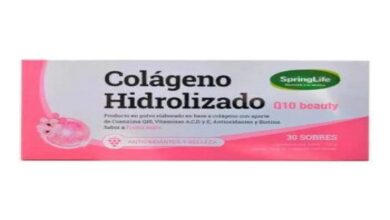Comprehensive Pet Care Guide: Nurturing Your Furry Friends for a Lifetime of Happiness

Pet ownership is a rewarding journey filled with love, companionship, and responsibility. As devoted pet parents, it’s crucial to provide our furry friends with the best care possible to ensure their well-being and happiness. In this comprehensive guide, we’ll delve into essential aspects of pet care, covering nutrition, grooming, exercise, mental stimulation, and preventive healthcare.
The Importance of a Balanced Diet:
A well-balanced diet is the cornerstone of pet health. Different pets have unique dietary needs, so it’s vital to choose high-quality pet food that meets those specific requirements. Consult with your veterinarian to determine the right type and amount of food for your pet’s age, size, and breed. Remember, treats are enjoyable, but moderation is key to prevent weight-related health issues.
Regular Grooming for Happy Pets:
Regular grooming not only keeps your pet looking and smelling fresh but also promotes their overall well-being. Brushing your pet’s fur helps prevent matting and reduces shedding, while nail trims prevent discomfort and potential injuries. Don’t forget to clean your pet’s ears and teeth regularly, as oral health is a crucial yet often overlooked aspect of pet care.
Exercise and Mental Stimulation:
Pets, like humans, need regular exercise to maintain a healthy weight and promote overall well-being. Tailor your pet’s exercise routine to their breed and energy level. Daily walks, interactive play, and engaging toys are excellent ways to keep them physically and mentally stimulated. Mental exercise is equally important, so consider puzzle toys and training sessions to challenge their minds.
Preventive Healthcare Measures:
Preventive healthcare is the key to a long and healthy life for your pet. Schedule regular check-ups with your veterinarian to monitor your pet’s overall health and catch any potential issues early. Stay up-to-date on vaccinations, flea and tick prevention, and heartworm medication. A proactive approach to healthcare will save you money in the long run and ensure your pet’s happiness.
The Significance of Regular Vet Visits:
Regular veterinary visits are more than just routine check-ups; they build a strong foundation for your pet’s health. Vaccinations, dental cleanings, and preventive treatments can prevent a host of health issues. Your vet can also provide valuable advice on nutrition, behavior, and any specific concerns you may have. Building a trusting relationship with your veterinarian is essential for your pet’s well-being.
Understanding and Addressing Behavioral Issues:
Pets may exhibit behavioral issues due to various reasons such as stress, boredom, or health problems. Understanding and addressing these issues is crucial for a harmonious relationship. Positive reinforcement, training, and providing a stimulating environment can help curb unwanted behaviors. If problems persist, seek guidance from a professional animal behaviorist.
Creating a Safe and Stimulating Environment:
A pet-friendly environment is vital for their overall well-being. Ensure your home is safe by removing hazards, securing toxic substances, and creating designated spaces for your pet. Provide mental stimulation with toys, scratching posts, and cozy resting spots. Cats may benefit from vertical spaces like cat trees, while dogs thrive on routines and secure spaces.
Suggested Conclusion:
being a responsible pet owner involves more than just providing food and shelter. It requires a commitment to understanding and meeting your pet’s physical, mental, and emotional needs. By focusing on nutrition, grooming, exercise, preventive healthcare, and creating a stimulating environment, you can ensure your furry friend lives a happy and healthy life by your side.
FAQ:
Q1: How often should I groom my pet?
A1: The frequency of grooming depends on your pet’s breed, age, and coat type. Most pets benefit from regular brushing and nail trims, typically once a week to once a month.
Q2: How much exercise does my pet need?
A2: Exercise needs vary among breeds. On average, dogs require 30 minutes to two hours of exercise daily, while cats benefit from play sessions and mental stimulation. Consult your veterinarian for personalized recommendations.
Q3: What vaccinations does my pet need?
A3: Core vaccinations for dogs often include rabies, distemper, and parvovirus. Cats usually receive vaccinations for rabies, feline herpesvirus, calicivirus, and panleukopenia. Consult your vet for a tailored vaccination schedule.
Q4: How can I address my pet’s anxiety?
A4: Addressing anxiety involves understanding its cause. Create a secure environment, use calming products, and consider behavioral training. Consult with your veterinarian for professional guidance on managing your pet’s anxiety.
Q5: What should I include in my pet’s first aid kit?
A5: A pet first aid kit should include bandages, gauze, adhesive tape, antiseptic wipes, tweezers, and any necessary medications prescribed by your veterinarian. Familiarize yourself with basic first aid procedures or take a pet first aid course.
This comprehensive guide empowers you to be the best pet parent possible, ensuring a lifetime of love and happiness for your furry friend.





